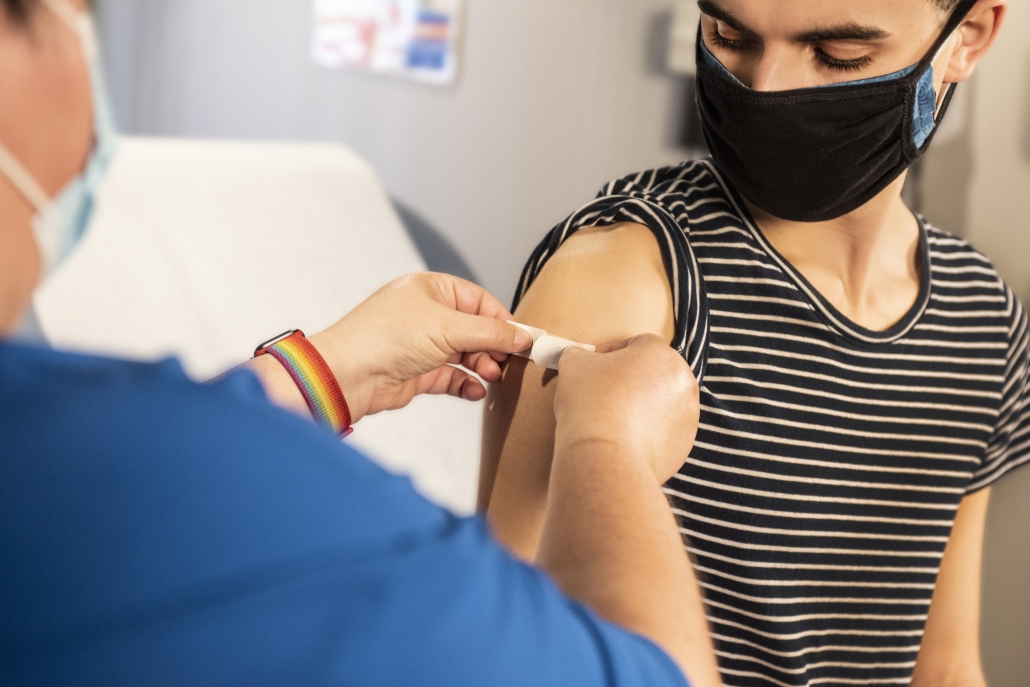Allergy Shots: A Long-Term Solution To Allergy Symptoms

Imagine a world without sniffles and sneezes. Picture a life free from pollen’s control. For more than 50 million Americans living with allergies, this may seem like a dream. However, there is a very real path to symptoms relief. Allergy shots are an FDA-approved option that can stop symptoms for good.
What are allergy shots?
Allergy shots – also known as subcutaneous immunotherapy (SCIT) – are a prolonged allergy treatment yielding long-term relief. Unlike over-the-counter medications which treat symptoms in the moment, immunotherapy focuses on eliminating allergies at large by building up your immune system. But how does this work?
Over the course of three to five years, your allergist will deliver a series of injections containing your identified allergen to your immune system. As these doses increases, your body slowly builds a tolerance through this incremental exposure until symptoms are greatly reduced or gone entirely.
Who can get allergy shots?
Immunotherapy is a common treatment available to most allergy sufferers ages five and up. Your allergy specialist may recommend allergy shots if you experience allergy-induced asthma, allergic rhinitis, conjunctivitis or eczema.
Allergy shots are effective in treating these common environmental allergens:
- Ragweed
- Grass and Tree Pollen
- Pet Dander
- Mold and Dust mites
- Insect Stings
You may not be recommended for allergy treatments if you have severe asthma, has a heart condition, are pregnant or take medications like ACE inhibitors or beta blockers. To see if allergy shots are right for you, visit familyallergy.com/education/allergy/shots.
NOTE: Allergy shots cannot treat food allergies. Please speak with your board-certified allergist about oral immunotherapy (OIT) as a food allergy treatment option that delivers similar results.
How are allergy shots administered?
As previously mentioned, allergy shots familiarize your immune system with allergens to build immunity and eliminate symptoms over time. Allergy shot regimens are delivered in two phases:
-
- Build-Up: In beginning stage, your allergists will slowly introduce your body to the allergen(s) identified by your allergy test. Over the next three to six months, your allergy doctor will increase the amount of this allergen via one to two injections per week.
- Maintenance: The maintenance phase begins once you have reached an “effective” dose – the allergen no longer triggers symptoms. Your injection frequency will decrease over the next three to five years – typically every two to four weeks before treatments are completed.
Family Allergy & Asthma also offers unique, accelerated allergy shot treatment plans which help you find reliable relief faster – cluster allergy shots (four to nine weeks) and rush allergy shots (one full-day appointment).
While allergy shot treatments may seem like a major commitment, the result of an allergy-free life is well worth the effort. As with any medical plan, it is vital that you complete your treatments for the best results.
Do allergy shots have side effects?
Immunotherapy patients may notice minor symptoms from treatments, including redness or swelling, itchy skin, nasal congestion and/or runny nose. While uncommon, allergy shots can cause severe symptoms such as anaphylaxis.
You will likely be required to remain in-office for at least 30 minutes following your injection to ensure no symptoms occur. If they do, your allergist will be able to safely address and remedy them ASAP.
Begin your journey toward allergy relief!
Your allergy-free life begins today. At Family Allergy & Asthma, our trusted allergy specialists are always ready to guide patients toward relief. With locations across the nation, allergy relief is always close to home. Contact us today to schedule your child’s allergy appointment.
About Family Allergy & Asthma
Founded in 1979, Family Allergy & Asthma’s practice network of allergy and asthma specialists provides high-quality, reliable and lasting allergy relief throughout Arkansas, Florida, Illinois, Indiana, Kentucky, Missouri, Ohio, Pennsylvania and Tennessee, and includes affiliates Allergy & Asthma Specialists (AAS), Asthma and Allergy Associates of Florida (AAAF) and Arkansas Allergy and Asthma Clinic (AAAC). For more information, visit familyallergy.com, and follow Family Allergy & Asthma on Facebook, Instagram and X.


